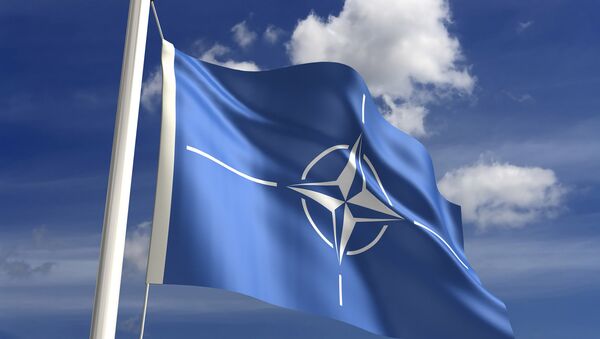MOSCOW, May 8 (RIA Novosti), Daria Chernyshova - The permanent stationing of troops in parts of Eastern Europe will renew an arms race amid heightened international tensions more dangerous than during the Cold War, Alexander Mercouris, an analyst and writer on legal affairs told RIA Novosti.
"Arms control would hardly be possible in such circumstances," Mercouris said. "There would be a renewed arms race amidst heightened international tensions more dangerous than during the Cold War," he warned.
US Air Force General Philip Breedlove said Tuesday that NATO will consider permanently stationing troops in parts of Eastern Europe following the increased tensions over Ukraine, Reuters reported. Defense and foreign ministers of NATO member states as well as senior commanders are to reevaluate the alliance's presence in Europe prior to a summit of NATO leaders in Wales in September, Breedlove said.
Mercouris said that NATO deployments in Eastern Europe "have so far been in token quantities posing no military threat to Russia," rather they should be seen as US support for NATO's eastern members.
"However these deployments do raise serious risks," Mercouris said. "They may encourage aggressive behavior by NATO states, such as Romania and Poland with claims on Moldova and Ukraine respectively. If these deployments become permanent, numbers may increase to the point where Russia cannot ignore them, especially if efforts continue to be made to encircle Russia with forward deployments of nuclear weapons in Poland or the Baltic States," Mercouris told RIA Novosti.
On the other side of the Atlantic, opinions are different. Dan Reiter, a political science professor at Emory University believes such statements as General Philip Breedlove's reflect "a growing fear that Moscow is returning to Cold War politics and policies." He also told RIA Novosti that US domestic issues contribute to such moves. "US president Barack Obama needs to answer his domestic foreign policy critics," Reiter said.
NATO has ramped up its military presence in the Baltic States and in Eastern Europe. The Pentagon sent additional fighter jets to Lithuania bringing the total number of the aircraft deployed to the region to 10. NATO has repeatedly blamed Russia for the escalation of tensions in Ukraine and building up arms and troops on the country's border.
If NATO further beefs up its presence in Eastern Europe, Mercouris said Moscow would have to respond by seeking allies "for example in China or even Latin America, to draw US attention away from Europe whilst strengthening its strategic nuclear deterrent capability to threaten the continental US."
Meanwhile all the parties to the ongoing conflict in Ukraine should take further steps to de-escalate tensions. Reiter stressed that tensions between Russia and other nations "will undermine opportunities to make progress on issues of common interest."
NATO has repeatedly blamed Russia for the escalation of tensions in Ukraine and building up arms and troops on the country's border. The alliance has already used the crisis to justify an expansion of its military forces near Russian borders, bumping up the number of air patrol missions in Eastern Europe.
Earlier Lt. Gen. Yevgeny Buzhinsky told RIA Novosti that Russia could deploy short-range Iskander missiles in the country's western most Kaliningrad region if NATO decides to strengthen its military presence in Eastern Europe.
"Russia is a nuclear power," he said. "If NATO becomes more active, we will deploy a division of Iskander missiles in Kaliningrad Region," added Buzhinsky, who previously headed the department of international agreements in the Russian Defense Ministry.




